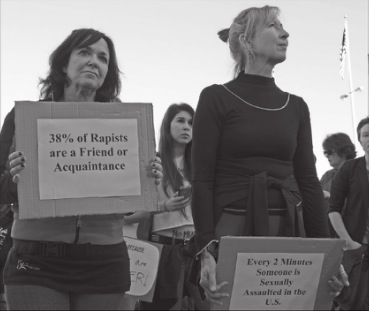‘Affirmative consent’ policy now required at all California colleges

By Kristie Barlas
The Guardsman
A new bill signed by Gov. Jerry Brown on Sept. 28 requires all California colleges and universities to adopt sexual assault policies that include an “affirmative consent” standard in order to receive state funds for student financial assistance.
Senate Bill 967 would require all California post-secondary campuses to adopt and implement new policies concerning sexual assault, domestic violence, dating violence, and stalking that adhere to the bill’s requirements.
The college has a sexual assault policy , but is currently updating the policy to meet the new requirements according to the new bill. Campus police are enforcing the old policy and investigating their role in the most recent one.
Campus Public Relation Officer Tiffany Green said that when a sexual assault incident is called in they report it to the San Francisco Police Department.
“When someone comes to report it, we’ll take the report, we’ll investigate it and we’ll forward it to SFPD,” Green said. “A sexual assault is a sexual assault, and we understand there is a new definition in regards to the victim and what they say and how they consent.”
University of California President Janet Napolitano announced the bill voluntarily approved the funding for establishing an independent program created for every campus to support sexual assault victims.
Perhaps the most distinct item defined in the new bill asks for an “affirmative consent” standard that is defined as “affirmative, conscious, and voluntary agreement to engage in sexual activity.”
The San Francisco Community College District’s Policy on Sexual Assault on Campus is consistent with Senate Bill 967’s.
Both state that consent requires a clear “yes”, can be revoked at any time, cannot be assumed by lack of protest, and cannot be made from someone mentally or physically incapacitated.
City College also fulfills the requirements of informing incoming students of educational and preventative information during orientation and by offering presentations on sexual violence prevention at Student Health Services.
Project SURVIVE, a peer-education program on campus, trains students to make classroom presentations on promoting healthy relationships.
According to Project Survive Coordinator Leslie Simon, students can become peer educators by enrolling in two courses: WOMN 54, “The Politics of Sexual Violence” and WOMN 55, “Ending Sexual Violence: Peer Education.” Students may also become eligible for the Sexual Health Educator Certificate.
Their main focus is to put a stop to sexual violence. They provide resources and information concerning numerous issues like sexual assault, domestic violence and rape.
Amber Straus, acting coordinator for Project SURVIVE said they do roughly 200 in-class presentations a year on campus as well as presentations in 9th grade high school health classes around San Francisco.
“Project SURVIVE has been doing preventative work for over 20 years now and we will continue to do so,” Straus said. “We do in class presentations and share information on local agencies that are able to support students.”
Project SURVIVE is celebrating their 20th anniversary this month and will be showcasing testimonials from peer educators on how Project SURVIVE saved them. The exhibit is located at the Learning Resource Center on the 2nd floor of Rosenberg Library.

Comments are closed.